Normal Fractions Worksheets for Ages 4-9
16 filtered results
-
From - To
Discover engaging and educational "Normal Fractions Worksheets for Ages 4-9" at Kids Academy! Tailored for young learners, these printable worksheets simplify the concept of fractions through fun and interactive exercises. Each worksheet meticulously guides children through fundamental fraction topics, including identifying, comparing, and creating fractions. Crafted by educational experts, these resources align with early grade math standards, ensuring a solid foundation in math. Empower your child to master fractions and boost their confidence with these thoughtfully designed activities. Visit Kids Academy for free access to high-quality math worksheets that make learning fractions enjoyable for kids ages 4-9!
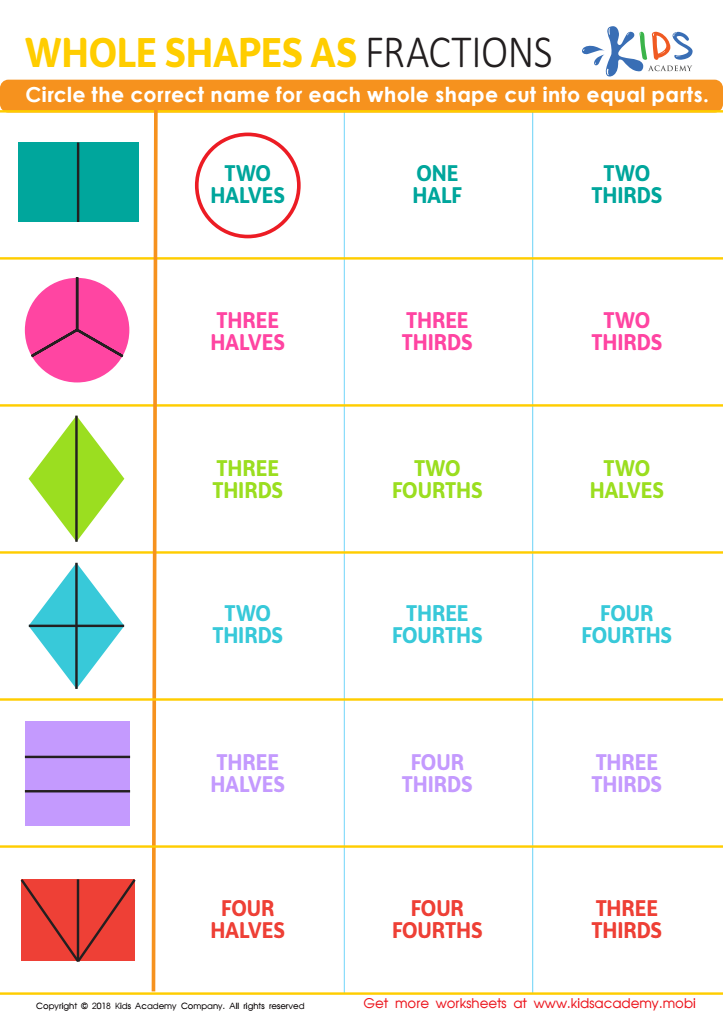

Whole Shapes as Fractions Worksheet
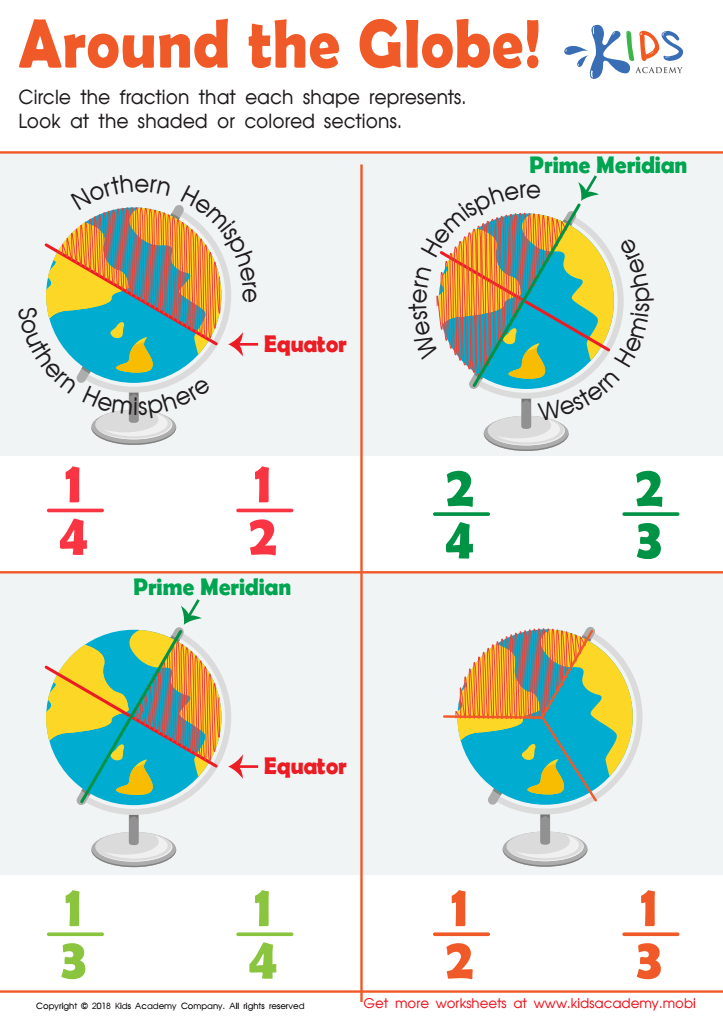

Around the Globe Worksheet
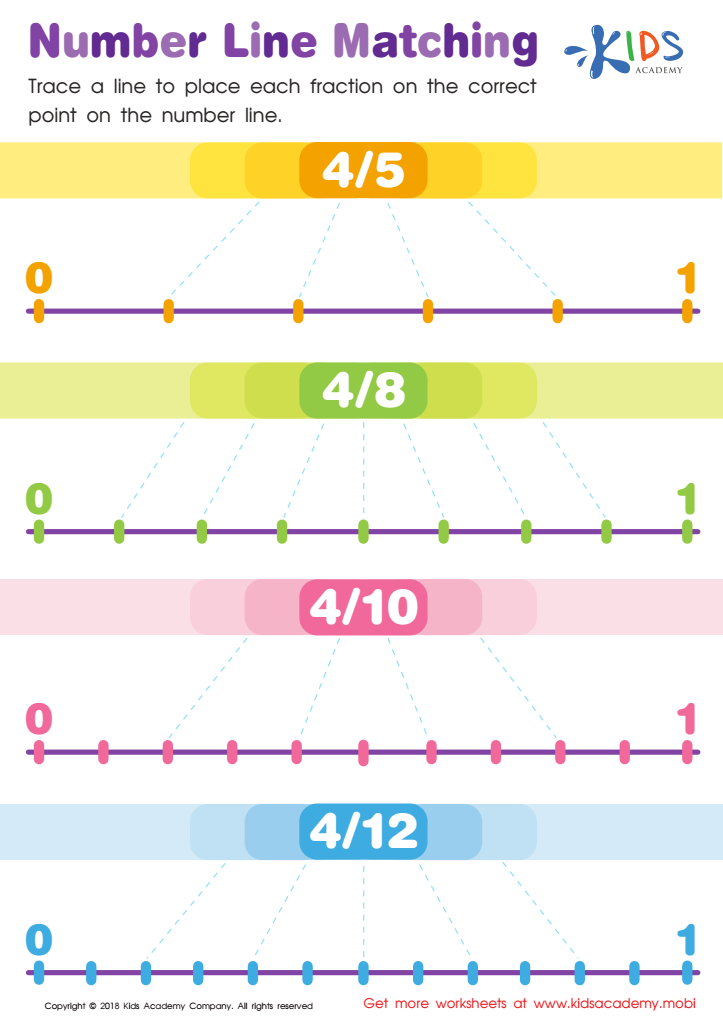

Number Line Matching Worksheet
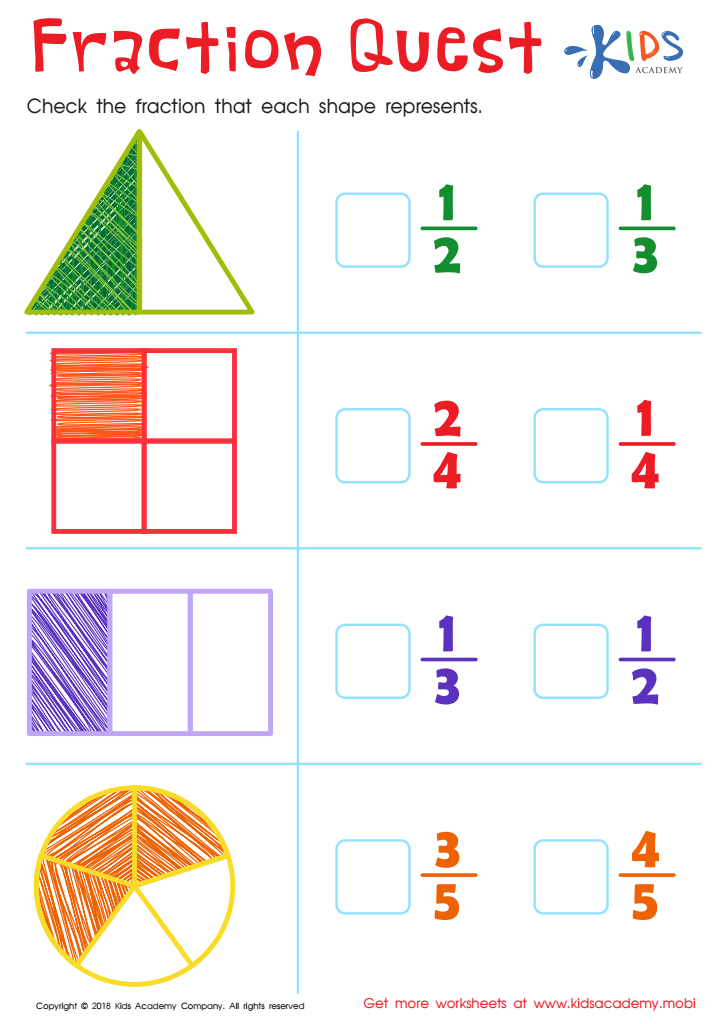

Fraction Quest Worksheet
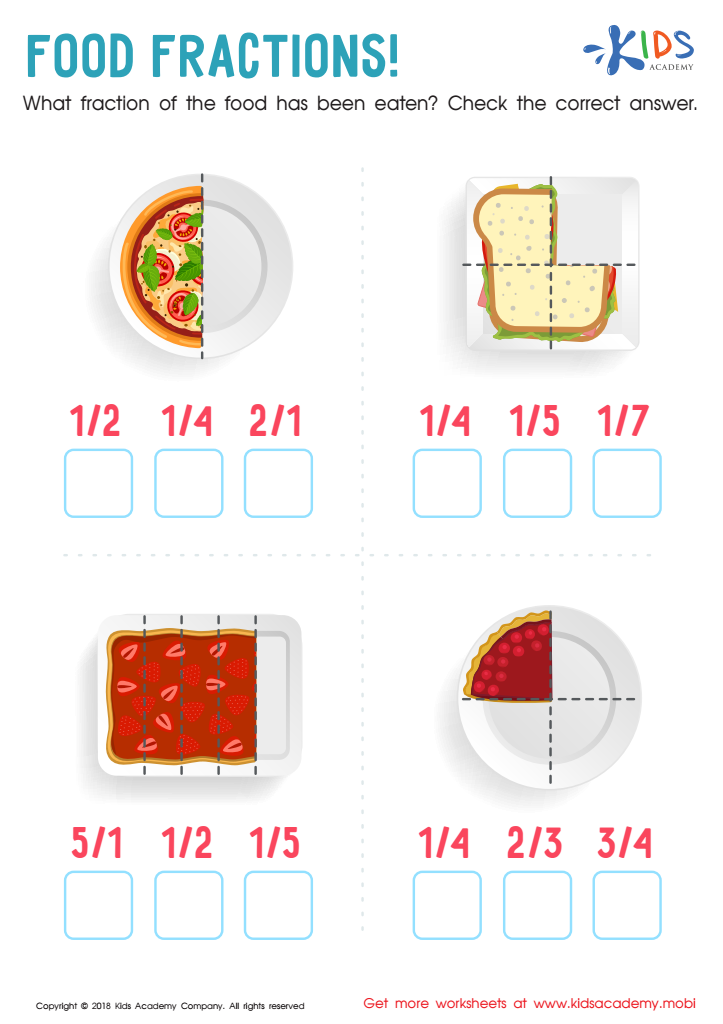

Food Fractions Worksheet
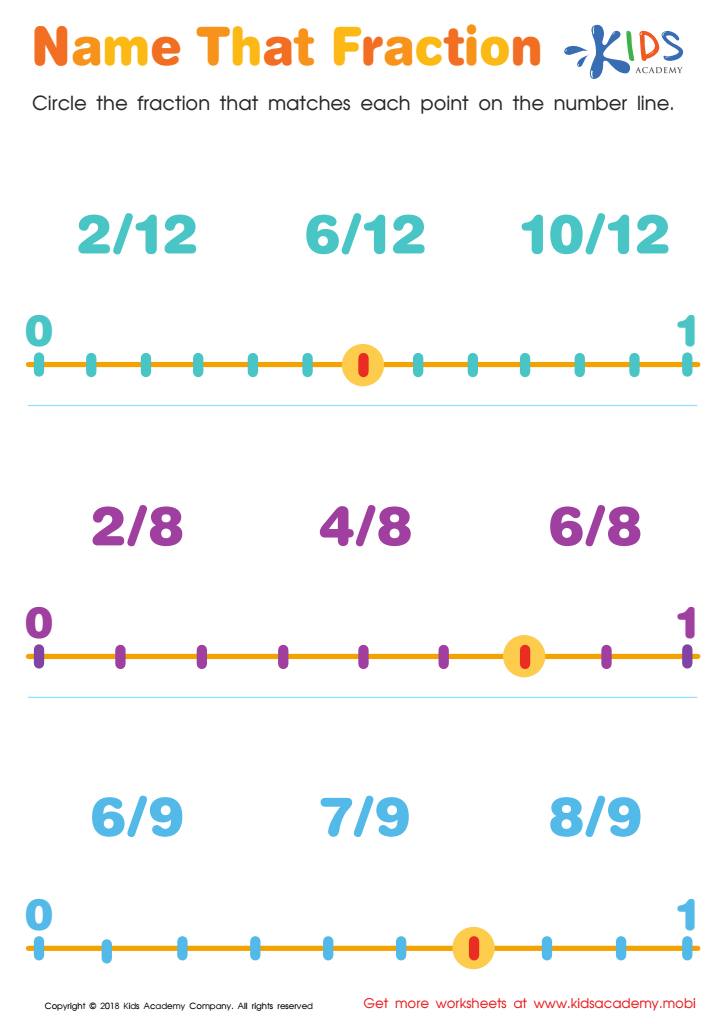

Name That Fraction Worksheet
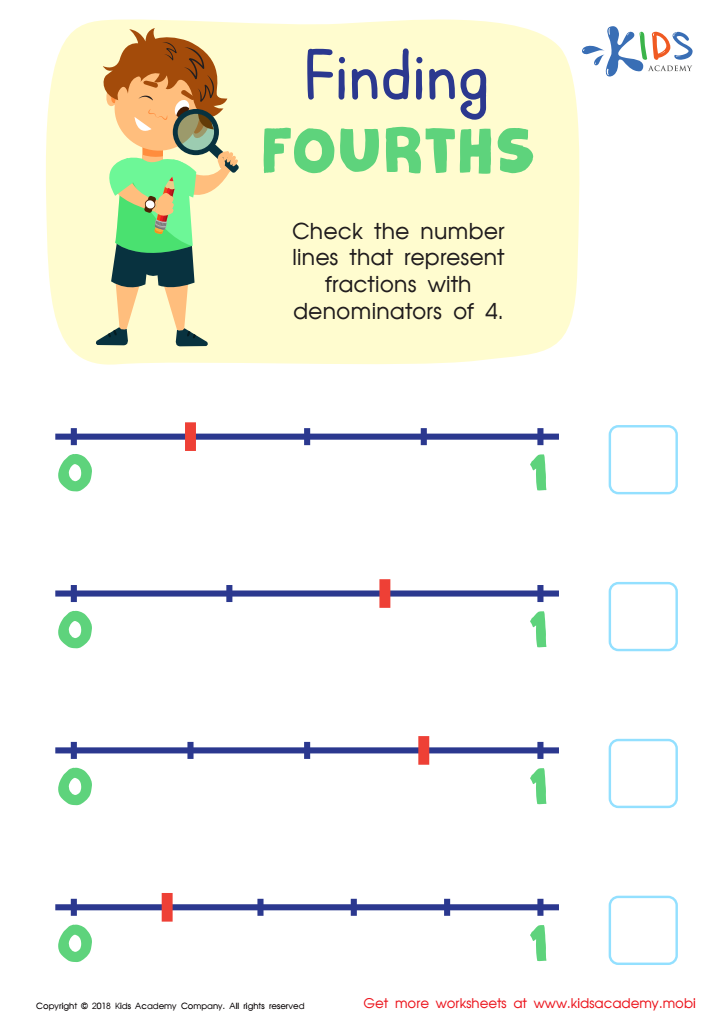

Finding Fourths Worksheet
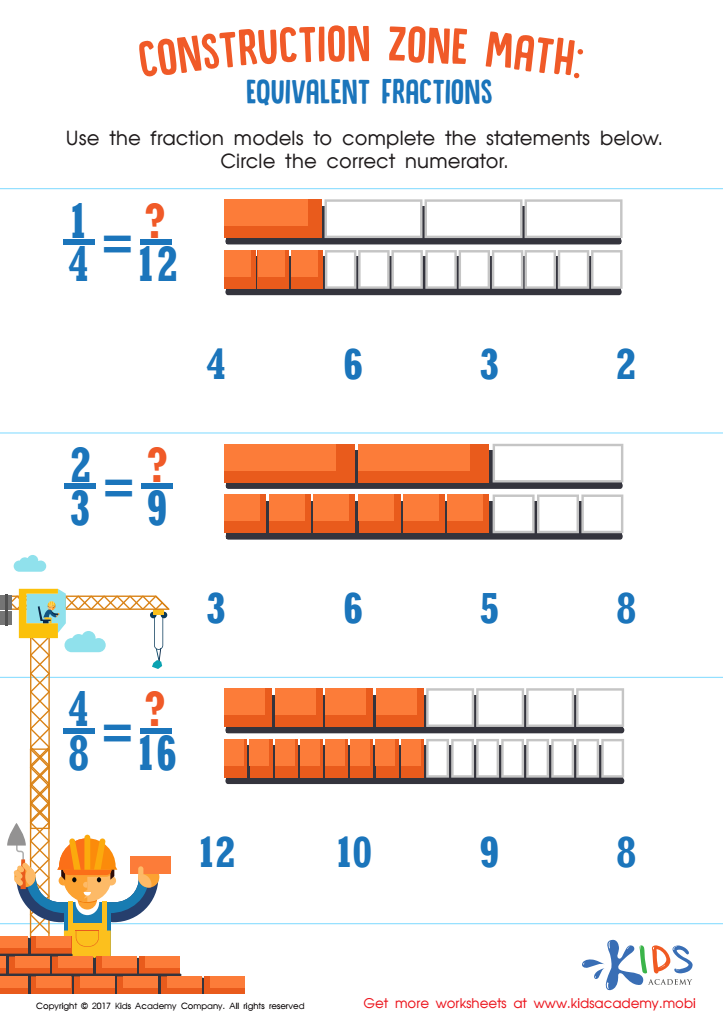

Equivalent Fractions Worksheet
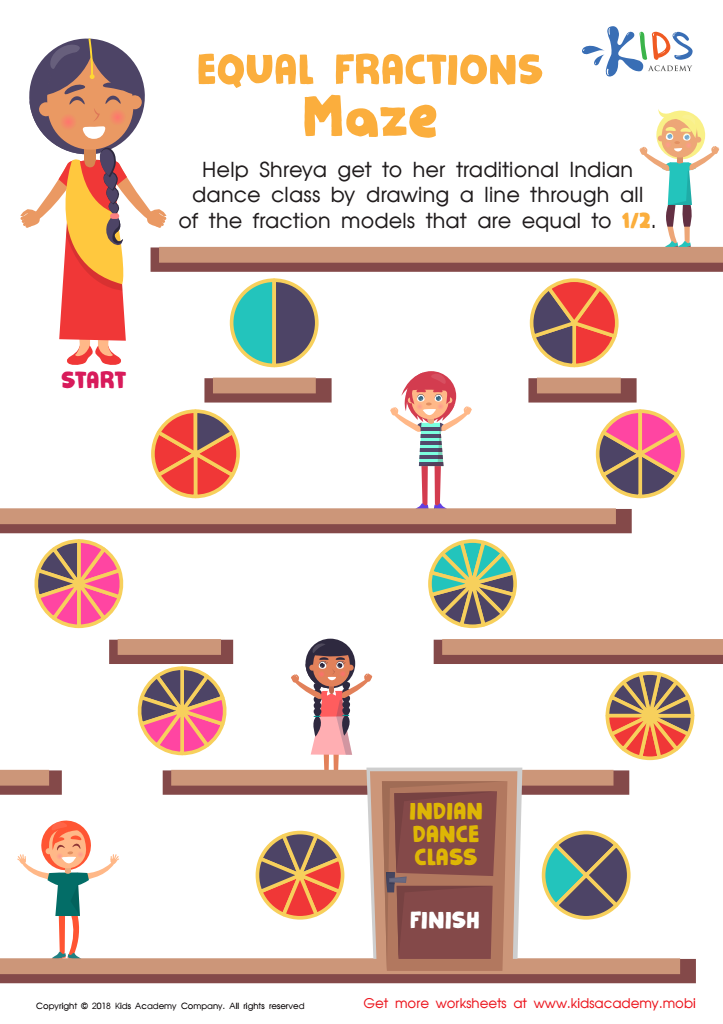

Equal Fractions Maze Worksheet
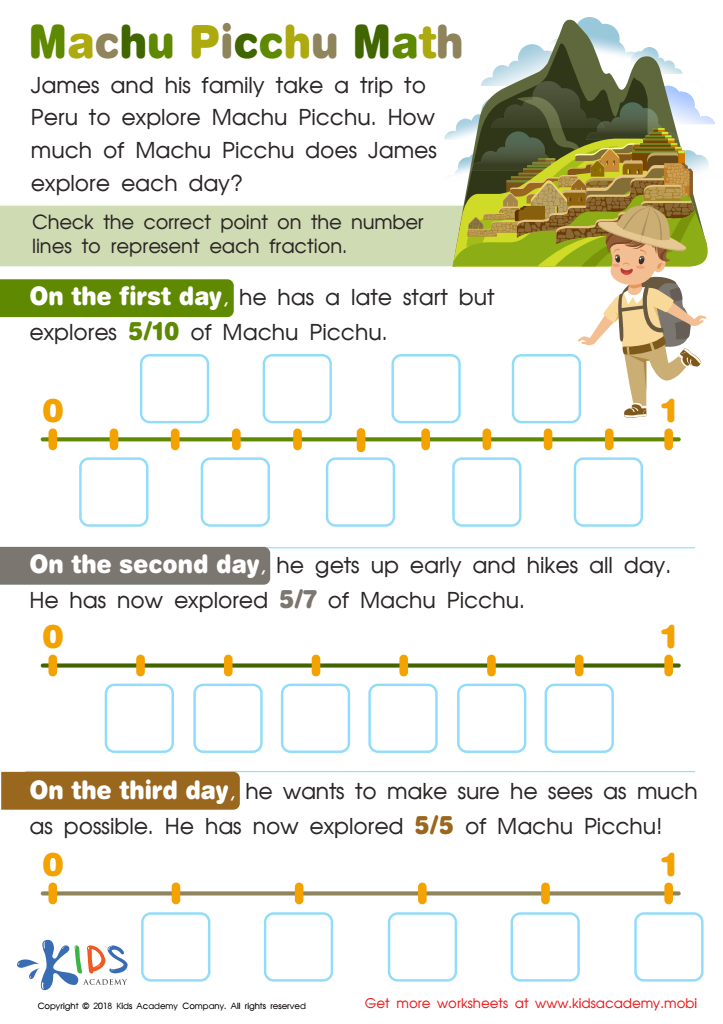

Machu Picchu Math Worksheet
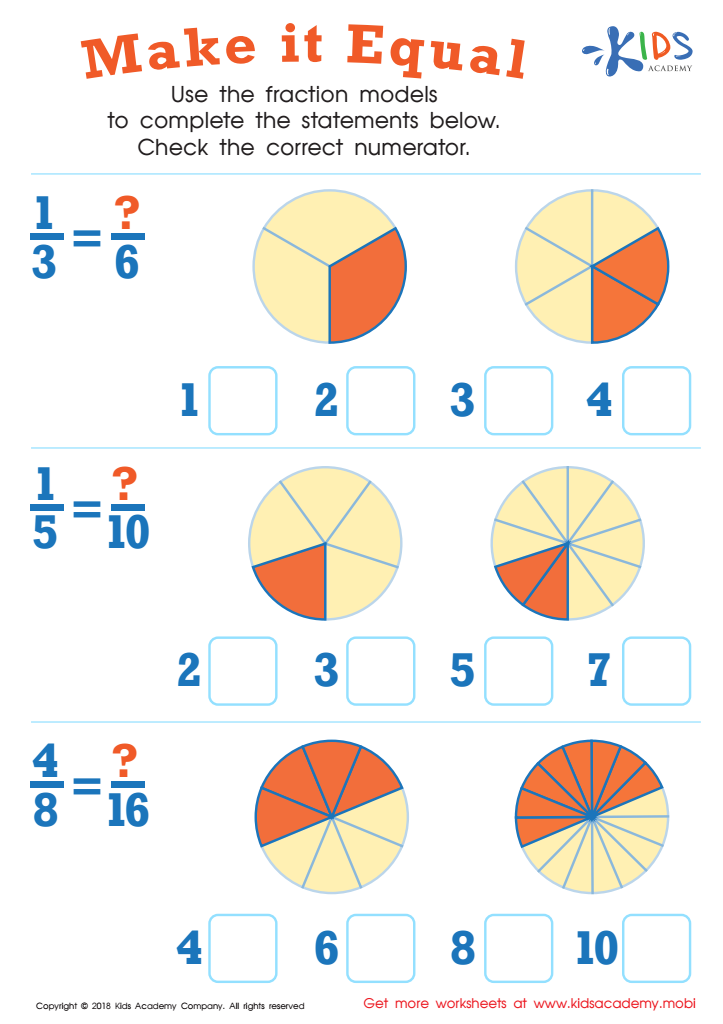

Make It Equal Worksheet
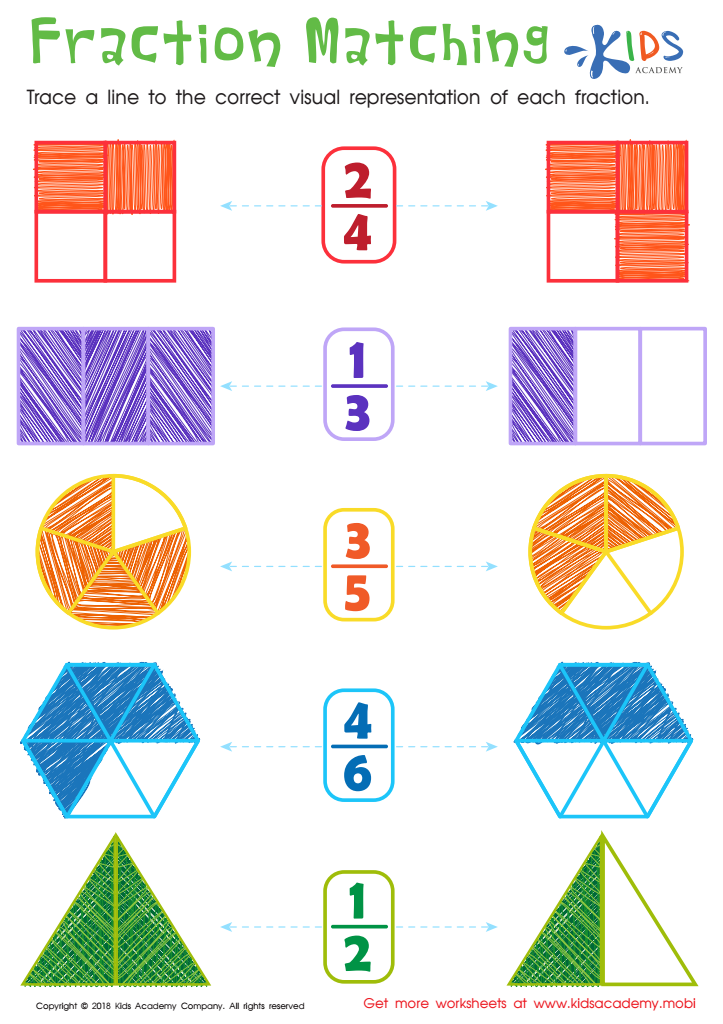

Fraction Matching Worksheet
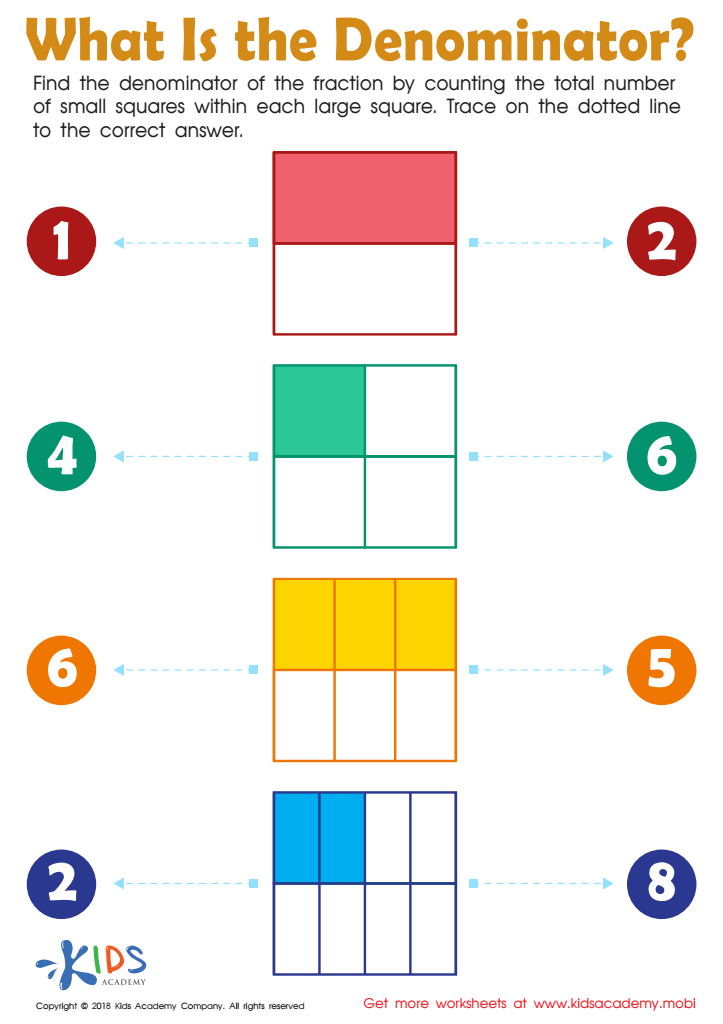

What Is the Denominator? Worksheet
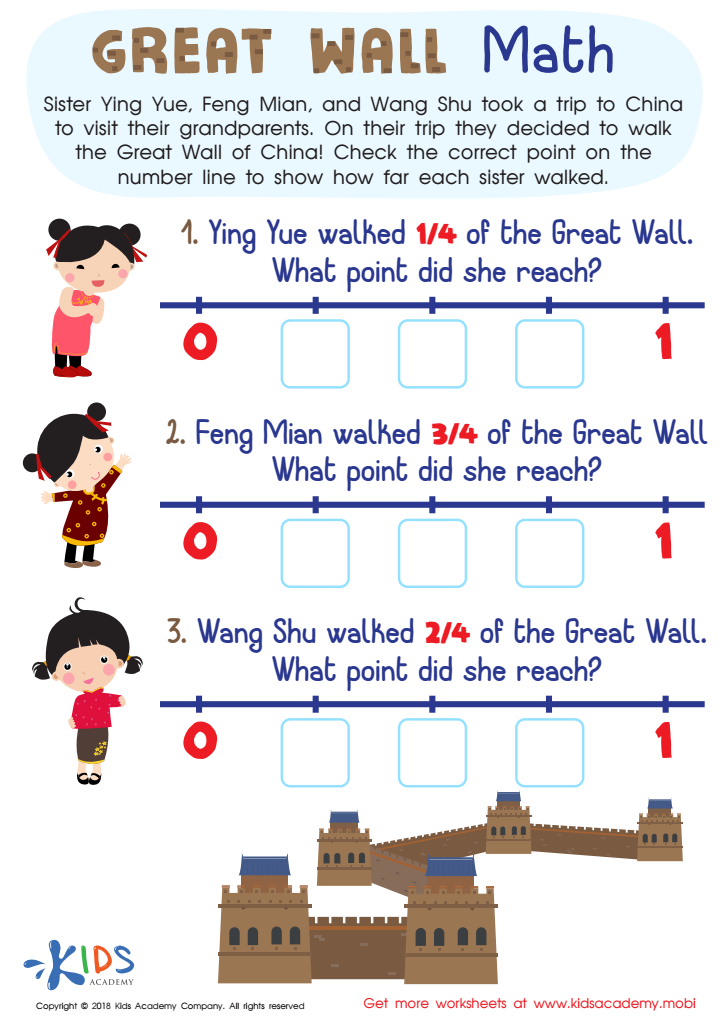

Great Wall Math Worksheet


World Traveler Worksheet
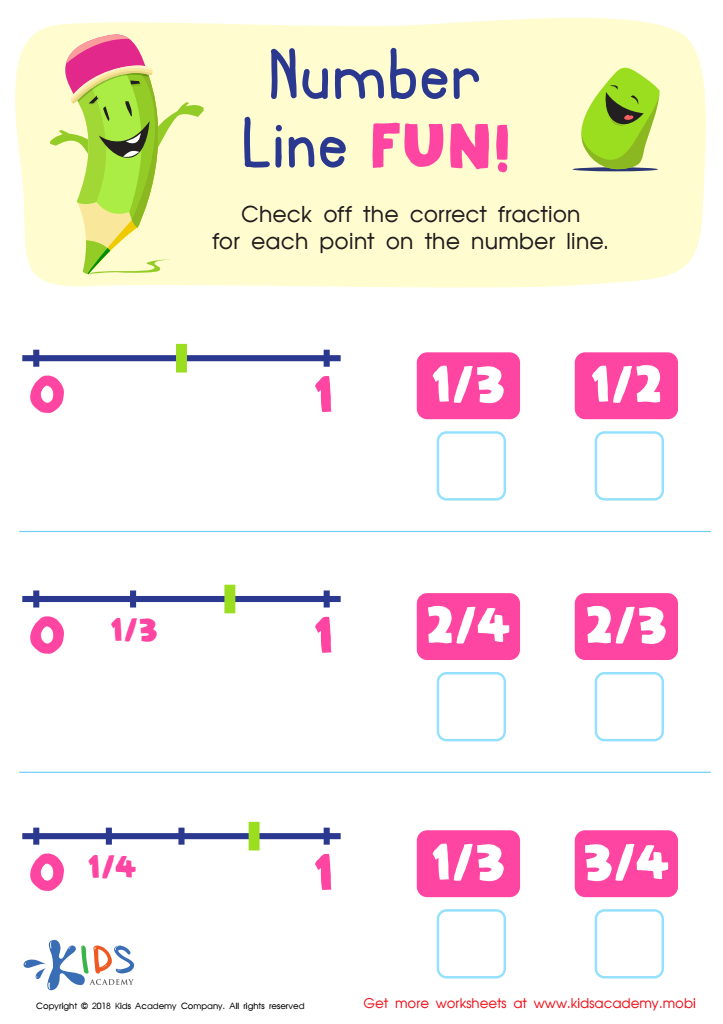

Number Line Fun Worksheet
Parents and teachers should care about introducing normal fractions to children aged 4-9 because it forms a foundational pillar of mathematical understanding crucial for later academic success. Understanding fractions at an early age enhances a child's number sense, allowing them to perceive quantities, parts of a whole, and proportionality intuitively. By familiarizing young learners with concepts like halves, thirds, and quarters through visual aids and practical exercises, they develop critical thinking and problem-solving skills.
Furthermore, fractions are ubiquitous in everyday life, from sharing snacks (dividing a pizza) to understanding time (half-past the hour), ensuring children can relate math to their world enhances their engagement and retention. Early exposure to fractions also bridges the gap to more abstract and complex math topics like decimals, percentages, and ratios, providing a seamless transition as their educational journey progresses.
High-quality fraction learning experiences can boost confidence and reduce math anxiety, allowing children not just to excel academically but also to embrace challenges positively. By prioritizing this, both parents and teachers can cultivate a proactive, mathematically literate young generation, primed to harness these critical skills in diverse real-life situations. Thus, understanding fractions is not merely an academic requirement but an essential life skill.
 Assign to My Students
Assign to My Students







.jpg)














